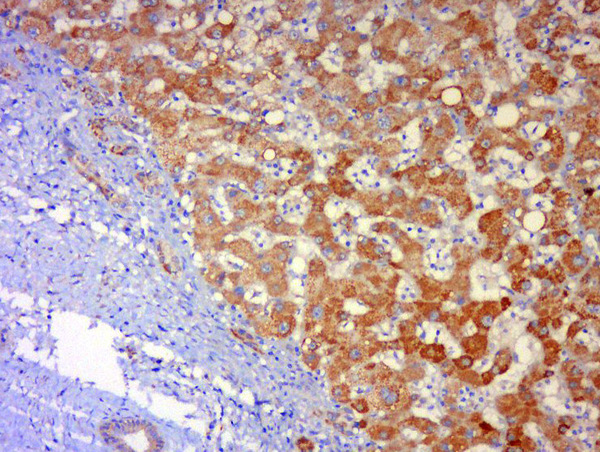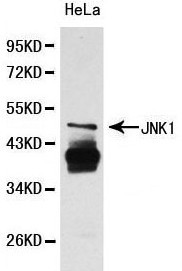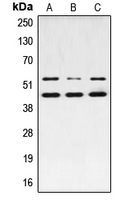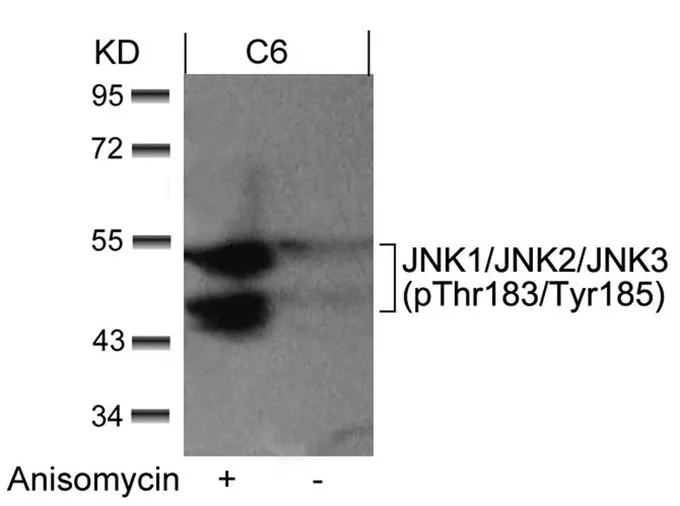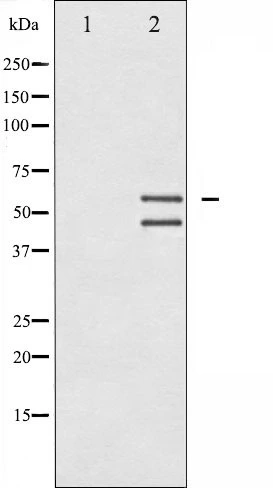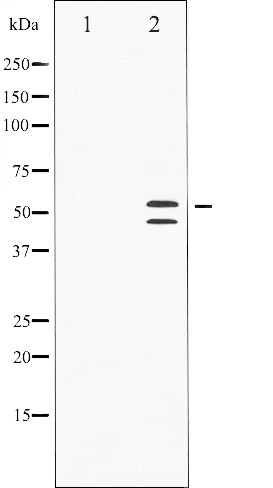
Western blot analysis of SAPK/JNK phosphorylation expression in Anisomycin treated HeLa whole cell lysates,The lane on the left is treated with the antigen-specific peptide.
JNK (phospho Thr183) antibody
GTX52327
ApplicationsWestern Blot, ImmunoHistoChemistry
Product group Antibodies
ReactivityHuman, Mouse, Rat
TargetMAPK8
Overview
- SupplierGeneTex
- Product NameJNK (phospho Thr183) antibody
- Delivery Days Customer9
- Application Supplier NoteWB 1:500-1:2000, IHC 1:50-1:200
- ApplicationsWestern Blot, ImmunoHistoChemistry
- CertificationResearch Use Only
- ClonalityPolyclonal
- Concentration1 mg/ml
- ConjugateUnconjugated
- Gene ID5599
- Target nameMAPK8
- Target descriptionmitogen-activated protein kinase 8
- Target synonymsJNK, JNK-46, JNK1, JNK1A2, JNK21B1/2, PRKM8, SAPK1, SAPK1c, mitogen-activated protein kinase 8, JUN N-terminal kinase, MAP kinase 8, c-Jun N-terminal kinase 1, stress-activated protein kinase 1, stress-activated protein kinase 1c
- HostRabbit
- IsotypeIgG
- Protein IDP45983
- Protein NameMitogen-activated protein kinase 8
- Scientific DescriptionThe protein encoded by this gene is a member of the MAP kinase family. MAP kinases act as an integration point for multiple biochemical signals, and are involved in a wide variety of cellular processes such as proliferation, differentiation, transcription regulation and development. This kinase is activated by various cell stimuli, and targets specific transcription factors, and thus mediates immediate-early gene expression in response to cell stimuli. The activation of this kinase by tumor-necrosis factor alpha (TNF-alpha) is found to be required for TNF-alpha induced apoptosis. This kinase is also involved in UV radiation induced apoptosis, which is thought to be related to cytochrom c-mediated cell death pathway. Studies of the mouse counterpart of this gene suggested that this kinase play a key role in T cell proliferation, apoptosis and differentiation. Several alternatively spliced transcript variants encoding distinct isoforms have been reported. [provided by RefSeq, Apr 2016]
- ReactivityHuman, Mouse, Rat
- Storage Instruction-20°C or -80°C,2°C to 8°C
- UNSPSC12352203

